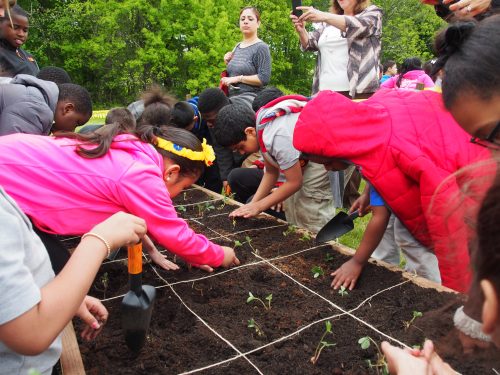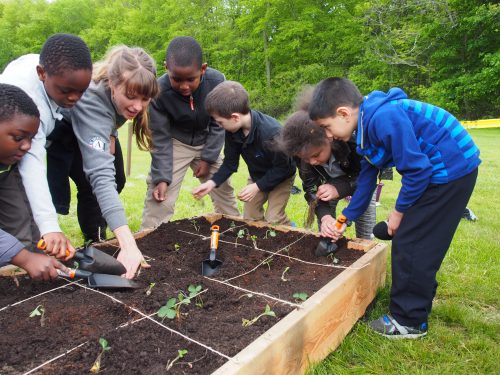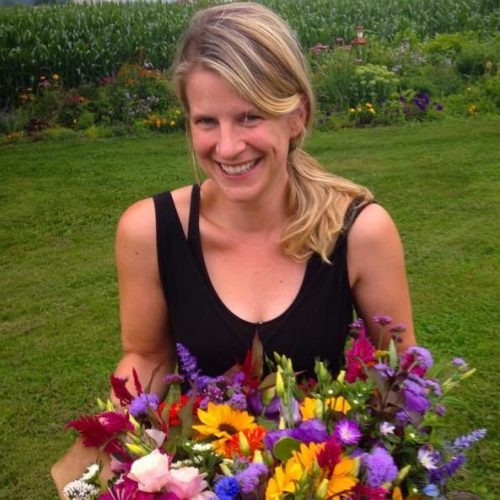In schoolyards across the country, something wonderful is happening. Students, teachers, parents, and members of the community are coming together to build school gardens. While they are no doubt beautiful, these gardens are so much more than simply “pretty.” They are helping children develop lifelong skills and healthy habits.
In a day and age when parents and educators worry about the harms of excessive screen time and burdensome standardized testing requirements, school gardens are adding more sunshine, fresh air, physical activity, and old-fashioned fun to the school day.
Nationwide, the school garden movement is growing, literally. Today, about 27% of public elementary schools have a garden, according to research from the Robert Wood Johnson Foundation, up from about 12% a decade ago. This number is expected to continue to increase, as more schools learn about the educational benefits of gardening.

Most of these gardens are located right on school grounds, or an adjacent lot, and include vegetables, fruits, herbs, and flowers. Students play an important role in planning and caring for the gardens, learning along the way. While the size, shape, and structure of school gardens vary widely, they all have one goal: enriching the lives of students.
There was a time when growing and raising food was a big part of life for most Americans, but these days less than 2% of the population is actively farming. With fewer of us farming, gardening teaches kids about where food comes from and keeps them connected to the land. By caring for their little plot of earth together, they are developing teamwork and communications skills. They become caretakers and land stewards who learn the value of hard work and the importance of respecting the environment.
In addition to the emotional and social benefits of school gardens, the health benefits are significant. Studies have shown that students involved in gardening programs are more inclined to try new vegetables, get more exercise, and eat more fruits and vegetables, overall. Research also suggests that school gardens can help students develop lifelong healthy eating habits and prevent obesity. The joy of working hard to grow their own food builds a sense of excitement around eating healthy and staying active.
In the Northeast, dairy farmers and the New England Dairy & Food Council are helping to support school gardens, so more kids can get their hands in the dirt and learn. Of course, dairy products are near and dear to us, so we’ve teamed up with schools to fund a fun and innovative “Soil to Smoothie” program, where kids can grow fruits and veggies to blend into dairy-based smoothies.

From growing and harvesting the ingredients, to mixing the smoothies, to taste-testing and sharing their concoctions with friends, the project is fun, active, and educational, according to Shari Staeb, School Nutrition Director at Mayberry Elementary School in East Hartford, CT.
“It generates excitement with the students and encourages them to have a school breakfast outside of the norm,” Shari reports.
As a farmer, producing food for my family and my community is immensely gratifying. But it is also somewhat new to me. I did not grow up on a farm, but instead married a sixth-generation dairy farmer in my thirties, so I came into this lifestyle in adulthood. Now, gardening is one of my greatest joys. I spend countless hours in the garden – it is my favorite place to be! I only wish I’d started sooner.
I have learned so much about patience, stewardship, good health, and hard work from gardening. These are lessons that will benefit students throughout their lives, no matter where life takes them! 🍓🥦🥕


